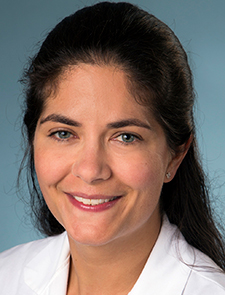Clinical question: What serious non-gastrointestinal adverse events are due to screening colonoscopy?

Dr. Gordon
Background: Although the gastrointestinal (GI) risks of colonoscopy have been described, the frequency and time course for non-gastrointestinal (non-GI) adverse events are less well understood. Prior reports of post-procedural non-GI complications are difficult to interpret, given that they did not account for the baseline rate of these events.
Study design: Retrospective study
Setting: All screening/surveillance colonoscopies in the states of California (2005-2011), Florida (2009-2015), and New York (2009-2015): a total of 4.5 million colonoscopies.
Synopsis: This study reviewed databases from six months before through six months after colonoscopies and determined rates and timelines of GI (lower GI bleeding or perforation) and non-GI (acute myocardial infarction, congestive heart failure, arrhythmia, stroke/transient ischemic attack, pneumonia, or in-hospital death) adverse events. The patients “served as their own controls,” whereby the stable pre-colonoscopy event rates were used to approximate the “background rates” of these adverse events.
As expected, the elevated risk of perforation and GI bleeding after colonoscopies was much more dramatic than non-GI adverse events (e.g., observed:expected ratio of perforation the week after colonoscopy was 14 and the observed:expected ratio of transient ischemic attack was 1.58). However, when looking at the sheer number of complications, the older cohort (≥65 years old) experienced more non-GI compared to GI complications. For example, in patients ≥75 years old, colonoscopy-associated ischemic stroke was more common than perforation (1,279 versus 912 colonoscopy-associated events).
The limitations of this study relate to its retrospective nature. Notably, we do not know whether patients had discontinued cardio- or neuroprotective medications such as anticoagulants. In addition, although the authors did a laudable job of attempting to establish background rates of adverse events, they were imperfect estimates.
Bottom line: This study is an important reminder that the risks of colonoscopies, especially for our older patients, extend beyond the more commonly feared GI side effects. The risk of non-GI complications must also be considered.
Citation: Ladabaum U, et al. Age-specific rates and time-courses of gastrointestinal and nongastrointestinal complications associated with screening/surveillance colonoscopy. Am J Gastroenterol. 2021;116(12):2430-45. doi: 10.14309/ajg.0000000000001531.
Dr. Gordon is an associate program director of the internal medicine residency at Maine Medical Center, Portland, Maine, an assistant professor at Tufts University School of Medicine, Boston, and a hospital medicine physician.